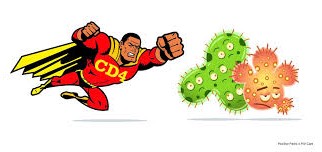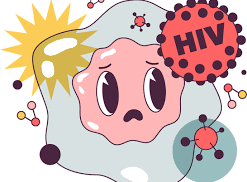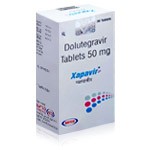First Steps Toward Healing – Understanding the Initial Treatment for HIV Type 1 Infection


What Is HIV Type 1 Infection and How Does It Affect the Body?
HIV Type 1 is the most common form of the Human Immunodeficiency Virus that attacks the body’s immune system. It mainly targets special white blood cells called T-cells that protect the body from germs and diseases. As the virus multiplies, it gradually weakens the immune system, making it harder for the body to fight infections or recover from illnesses.
Key points:
- HIV Type 1 spreads through contact with infected blood or body fluids.
- The virus slowly destroys immune cells, reducing the body’s natural defense.
- Without proper treatment, the infection can develop into a severe immune deficiency.
Early diagnosis allows doctors to start treatment before major health damage occurs. With the right medical care and daily treatment, people with HIV Type 1 can live long, healthy, and active lives
Why Is Early Treatment So Important for HIV Type 1 Infection?
Starting treatment early helps control the virus before it causes lasting harm. Modern therapies can lower the viral amount in the blood to almost undetectable levels, protecting both the patient and their partners. Early medical attention also helps the immune system recover faster.
Main ideas:
- Quick treatment reduces the virus before it spreads in the body.
- It helps maintain a strong immune system and prevents other infections.
- Early therapy reduces the risk of transmitting the virus to others.
- Patients who begin early often experience fewer long-term complications.
The earlier treatment begins, the greater the chances of staying healthy and avoiding future immune system damage.
How Does Initial HIV Treatment Work?
Initial treatment usually involves a combination of antiviral medicines that stop the virus from making copies of itself. These medicines target different steps of the virus’s life cycle, making it hard for HIV to grow or spread. Doctors create a personalized plan for each patient based on their test results, age, and overall health.
Important points:
- Treatment involves a mix of medicines that act together for better results.
- Consistent use is essential to keep the virus under control.
- Regular blood tests help doctors track progress and adjust doses.
- Most people begin to feel stronger and healthier after the first few months.
Modern medicine can now suppress HIV so effectively that many people can live normal lives with little or no symptoms.
How Can Lifestyle Choices Support Medical Treatment?
While medicine is the main part of HIV treatment, lifestyle also plays a big role. A balanced routine helps the immune system respond better to treatment and improves energy, mood, and overall health.
Helpful tips:
- Eat nutritious food that strengthens the body.
- Sleep well to allow recovery and support mental health.
- Avoid alcohol, smoking, or recreational drugs that can slow down healing.
- Exercise regularly to improve circulation and reduce stress.
Healthy daily choices help the body and medicine work together, making recovery smoother and more effective.
What Are the Common Challenges in HIV Type 1 Treatment?
Treatment can be successful, but it’s not always easy. Some people struggle with medicine side effects, emotional pressure, or fear of social judgment. Recognizing and addressing these challenges early ensures that patients stay on track with therapy.
Common challenges:
- Mild side effects such as fatigue or nausea.
- Emotional distress after diagnosis or due to stigma.
- Difficulty remembering daily medicine schedules.
- Concerns about relationships and long-term health.
Support from doctors, counselors, and family can make a big difference in helping patients continue treatment with confidence.
What Role Do Newer Medicines Play in HIV Therapy?
Medical research has created more advanced and easier-to-use treatments. Modern HIV medicines are more effective, safer, and simpler than older versions. Many combine multiple active ingredients into one tablet, reducing pill burden and side effects.
Benefits of newer medicines:
- One pill a day for easier treatment routines.
- Fewer side effects, making long-term use more comfortable.
- Stronger and longer-lasting viral control.
- Lower chances of drug resistance.
These new therapies make life easier and healthier for patients starting treatment today. One modern medicine that has shown great promise is Xapavir (Dolutegravir).
How Does Xapavir (Dolutegravir) Help in Initial HIV Treatment?
Xapavir (Dolutegravir) is a widely trusted option in modern HIV care. It helps block the virus’s ability to multiply, giving the immune system time to recover and strengthen. It is also known for being easy to take and well-tolerated by most people.
Key benefits:
- Effectively reduces viral load in the blood.
- Minimal side effects for most patients.
- Can be taken once daily, improving treatment consistency.
- Works well with other HIV medicines in combined therapy.
This medicine plays an important part in helping patients gain control over their health and live a stable, fulfilling life.
Living Positively with HIV Type 1
Today, an HIV Type 1 diagnosis is not the end of a healthy life. With reliable treatment, modern medicine, and supportive care, people can manage the condition successfully for decades. Regular checkups, emotional support, and consistent medication use are the keys to success.
Life improvement strategies:
- Stay consistent with prescribed medicines like Xapavir.
- Keep regular appointments with healthcare professionals.
- Join support communities for motivation and guidance.
- Focus on personal goals and positive living.
When HIV is managed properly, individuals can lead full, happy, and productive lives with confidence and stability.
Moving Forward
The initial treatment for HIV Type 1 infection is a combination of early diagnosis, effective modern medicines, and strong emotional and lifestyle support. Through continued research, advanced medicines like Xapavir (Dolutegravir), and dedicated medical care, HIV has become a manageable condition that allows people to live long and meaningful lives.
Drug Description Sources: U.S. National Library of Medicine, Drugs.com, WebMD, Mayo Clinic, RxList
Reviewed and Referenced By:
- Dr. Anthony S. Fauci – Immunologist and HIV Research Pioneer Dr. Fauci has played a leading role in HIV research and public health awareness for decades. As a contributor to resources used by the U.S. National Library of Medicine, his work has shaped global understanding of HIV pathogenesis and treatment approaches.
- Dr. Susan Lee – Pharmacologist Dr. Lee collaborates with Drugs.com, reviewing antiviral medication data to ensure accuracy and clarity. Her focus on HIV drug profiles helps patients understand treatment effectiveness and safe use.
- Dr. Andrew Keller – Immunology Researcher Dr. Keller is an advisor for RxList, specializing in immune response studies related to viral infections such as HIV Type 1. His work supports the creation of reliable, research-based medical descriptions.
- Dr. Laura Peterson – Clinical Medicine Expert Dr. Peterson contributes to WebMD, where she reviews and updates articles about HIV symptoms, treatment adherence, and patient support. Her focus is on making HIV-related health information understandable to the public.
- Dr. David Grant – Public Health Analyst Dr. Grant works with the Mayo Clinic and the U.S. National Library of Medicine on HIV prevention and early treatment studies. He reviews data used in public educational resources and health awareness programs.
Article Post: Editorial Team of RXShop.md
(Updated at Oct 10 / 2025)

